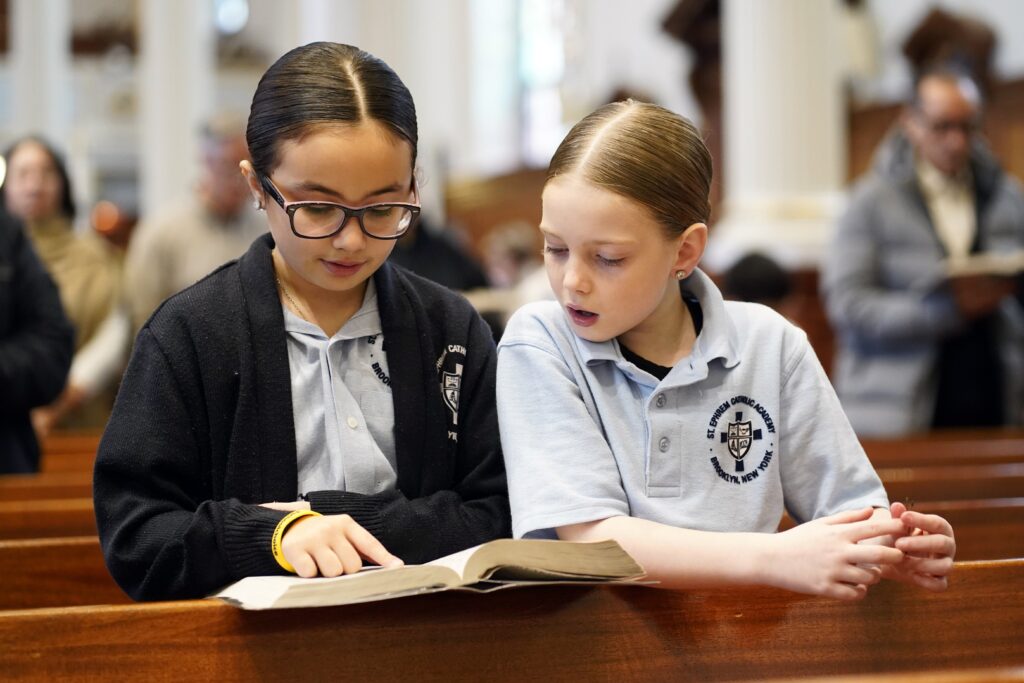
Earlier this month, the president signed into law the first federal school choice tax credit in our nation’s history. This new landmark legislation, led by Senators Ted Cruz, R-Texas, and Bill Cassidy, R-La. and Tim Scott, R-S.C., was modeled on the Educational Choice for Children Act (ECCA) — which aimed to expand parental choice in education to an estimated 2 million children across the country.
For years, the U.S. Conference of Catholic Bishops (USCCB) has endorsed this bill because it aligns with our church’s teaching that parents are the first and primary educators of their children and, therefore, have the right to select the best educational environment for them.
The groundbreaking new law deserves accolades for its recognition of the rights of parents, but there are significant questions about how it will be implemented at the federal and state levels. The potential success of this law depends on what happens next. Ensuring that the greatest number (and the neediest) of children can benefit from this opportunity will require vigilance and discernment during the implementation and rulemaking process.
One challenge will be ensuring that states “opt in” to the new federal opportunity so that children in each state can access scholarships. For example, my own state of New Jersey currently has no state-level private school choice program. This new federal law could, for the first time, bring new resources to the children and families who wish to attend Catholic schools in our state.
In the Diocese of Trenton alone, we have tens of thousands of students who could benefit from such scholarships, and nearly 40 Catholic elementary and secondary schools to serve them. Lawmakers have the power to unlock millions of dollars in new education funding for students without adding a single dime to their budget or shifting any funding away from public education.
Ensuring that our religious liberty and private school autonomy are respected also remains an area where church leaders, parents and legislators must be particularly vigilant. Canon law is crystal clear that Catholic schools must be centered on the principles of Catholic doctrine. Our Catholic identity is too important to ever jeopardize. Promoting the urgency of affirming our rights to religious freedom and autonomy is a crucial priority of the bishops’ conference during the rulemaking process.
The USCCB has made clear that the Catholic community has a responsibility to support parental choice in education. For years, state Catholic conferences and the Catholic laity have been deeply and tirelessly engaged at the state and federal level promoting laws that empower parents and strengthen communities — and I applaud these efforts. As a result of this work, more than 1.3 million children across the country are benefitting from school choice today.
As bishops, we have a particular responsibility to promote policies that support families in their choice of education. Canon law says that, as pastors of souls, bishops have a special duty to do all they can to make sure the faithful can avail themselves of a Catholic education. As a lifelong educator, I believe deeply in the value of a rich, authentic Catholic education, and as the chairman of the USCCB’s Committee on Catholic Education, it is my responsibility to encourage my brother bishops to promote policies that support parents in their liberty to pursue the education of their choice for their children — but particularly a Catholic education in a Catholic school.
The new federal law offers the chance to unlock educational opportunities for millions of children across the country — but there is still more work to be done. Over the next several months, state Catholic conferences, parents, pastors, school leaders and all the Catholic faithful will have a special role to play to ensure that the law benefits the greatest number of children possible.
President John F. Kennedy once remarked, “children are the world’s most valuable resource and its best hope for the future.” We owe it to them to provide them with the best education possible. I urge the Catholic faithful to continue to pray for parents and to support their efforts to fulfill their God-given right and obligation to direct their children’s education, and for our elected leaders, they affirm the same.
– – –
Bishop David M. O’Connell of Trenton, New Jersey is the chairman of the U.S. Conference of Catholic Bishops’ Committee on Catholic Education.


